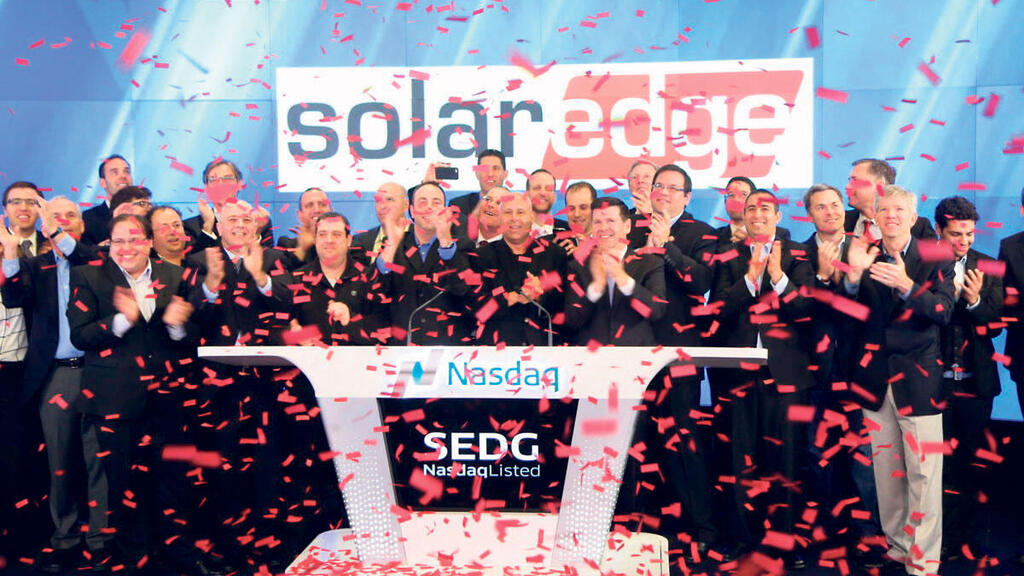
SolarEdge shares surge over 35% on expectations for interest rate cuts
From the beginning of 2023 until the Fed's announcement last week, the renewable energy company had lost more than $11 billion of its market cap, accounting for about 70% of its total value
Federal Reserve Chairman Jerome Powell's indication last week about expected interest rate cuts boosted the shares of solar companies in the U.S., including those of Israeli firm SolarEdge, which registered a jump of over 35% between Wednesday and Friday’s closing.
This increase comes after a year of sharp declines in the field, resulting from the severe dependence of solar energy companies on financing and, therefore, on the level of interest. Powell's indication, along with the expectation of continued increases in the U.S. government's subsidies for renewable energies, may mark a change in trend for them.
Last week, Powell announced that the interest rate in the U.S. would be left unchanged at 5.5%, while also signaling to the markets that three interest rate cuts are possible during 2024, of 0.25% each. This comes after the Fed raises rates 11 times since March 2022.
The apparent change of direction by the Fed has benefited the shares of solar energy companies traded in the U.S., after the high-interest rate environment depressed their value for over a year. The increase in interest rates affects the ability to finance all types of solar projects—from large ground projects to solar panel systems installed on roofs of private homes, for whose installation it is usually necessary to take out a loan.
One of the companies that benefited from the Powell’s words was SolarEdge, which jumped 16.7% the day after the Fed's announcement and by over 35% in total since Wednesday morning.
Related articles:
This jump comes at the end of one of the most difficult years the company has known. From the beginning of 2023 until the Fed's announcement, the company had lost more than $11 billion of its market cap, accounting for about 70% of its total value.
The bulk of Solaredge's decline, according to most analysts' estimates, was due to the challenging macro environment, which included, among other things, the high-interest rate. However, the interest rate is not the only factor that led to the decline in the value of the solar companies, to which a certain decrease in demand in Europe and the increase in competition from China also contributed.
All of these together also cut the target price of the SolarEdge share. In a Barclays Bank report from the beginning of October, analysts cut the target price for the company's stock from $274 to $152, a 45% drop. After the publication of the report, the value of the company dropped by $600 million.
The low point of the past year for the solar energy company may have been about two weeks ago when it was reported that SolarEdge was being dropped from the prestigious S&P 500 index after two years of being included in it. SolarEdge was the first and only Israeli company to date to be part of the index.
As mentioned, apart from the issue of interest rates, there is also the expectation of additional subsidies from the American government for renewable energies which increased greatly with the passage of the Inflation Reduction Act (IRA) last summer. On Thursday, the American government published a series of conditions for receiving aid under the IRA for renewable energy companies. Among other things, and with the aim of dealing with the growing competition from China, the American government is offering benefits to companies that will manufacture wind turbines, solar panels, and voltage converters on U.S. soil.
SolarEdge wasn't the only company in the field to jump after the announcement. Its biggest competitor in the field of inverters, Anaphase, also climbed by 11.72%, while the solar panel manufacturer First Solar jumped by 11.7%. This happened when the S&P 500 index rose by only 0.3% on Wednesday.